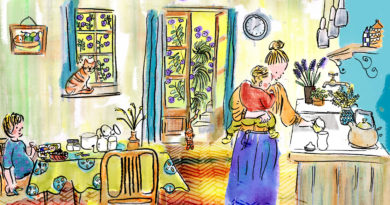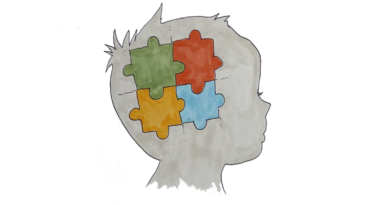Stopping Breastfeeding
 Very rarely, a mother is forced to stop breastfeeding her child. This may be due to a critical illness with the baby or herself. Stopping breastfeeding in a crisis situation can be a time of great sadness and distress. Breastfeeding is part of a woman’s cycle which follows conception, pregnancy and childbirth, so abrupt weaning can throw the whole hormonal system out of balance. The hormones which have produced and let down her milk are suddenly deprived of their motor. Medication is needed to suppress the milk. This too is contrary to the mother’s body rhythm and she may feel disorientated or out of kilt. In such cases mothers may have to deal with feelings of incredulity, denial, grief and disappointment. Why has this happened to me, to us? What have I or we done wrong?
Very rarely, a mother is forced to stop breastfeeding her child. This may be due to a critical illness with the baby or herself. Stopping breastfeeding in a crisis situation can be a time of great sadness and distress. Breastfeeding is part of a woman’s cycle which follows conception, pregnancy and childbirth, so abrupt weaning can throw the whole hormonal system out of balance. The hormones which have produced and let down her milk are suddenly deprived of their motor. Medication is needed to suppress the milk. This too is contrary to the mother’s body rhythm and she may feel disorientated or out of kilt. In such cases mothers may have to deal with feelings of incredulity, denial, grief and disappointment. Why has this happened to me, to us? What have I or we done wrong?
When a mother or baby is critically ill and medication for either prohibits breastfeeding, flexibility is needed. Explore other options to abrupt weaning and seek a second opinion from someone who understands the whole situation. Apart from professional advice and treatment you need support and sympathetic help. You should not feel guilt or blame nor harbour rancour or resentment. Seek comfort in different ways and above all, speak up about your feelings and your fears.
Abrupt weaning can be devastating for a breastfeeding mother. It causes extreme physical and emotional distress. And if the newborn has died, parents are faced with a double tragedy. On the emotional side, mothers need understanding and gentle handling. They need to be helped to acknowledge their grief. Offer them a shoulder to cry on, encourage them to speak, but hold back on the advice and just listen to them.
If possible reduce your milk supply as slowly as possible, removing just enough to feel comfortable. This will help you stay comfortable while giving your breasts the signal to shut down production. It may take a week to ten days, and again it may be possible to express drops of milk for a year or more. To speed up the process, some mothers find it helpful to use sage, parsley or peppermint, which aids in suppressing milk. But exercise caution with over the counter remedies which might prove harmful. Baby needs lots of snuggles during this sad and confusing time. A younger baby might need lots of walking and singing, and a still younger one might adjust to a bottle, but will still be grateful for mother’s warmth and bare skin and perhaps a finger to suck on after feeding. Most babies are resilient and will adapt to a bottle especially if it is not given by the mother, whom they automatically associate with breastfeeding.
Some mothers feel they need to wean during the night and this usually results in prolonged crying. Whilst some parents resort to letting the baby cry it out, this can be very stressful and can cause long term effects on the child. Babies need night feedings for many different reasons: hunger, thirst, reassurance, comfort, over or under stimulation. Try to find ways to compensate, and give yourself time and patience if you have the luxury to do this slowly. If night time nursing has been the norm, it might be useful to have baby sleep with Dad instead. The skin contact and warmth will help to soothe baby.
At the other end of the emotional roundabout, there are mothers who are no longer so happy feeding their older baby or toddler, as they were with an infant. Some are resentful, and they regret the many hours they spend nursing, and not getting on with other things. They find it difficult to say no to a demanding baby and they begin to fear the drag on their breasts, which results in mounting anger over what they perceive to be a loss of control over their bodies. Some mothers are irked by this constant drain on their bodies; they long for freedom to do what they want to do, whenever. We recall one mother in floods of tears who reported, “He’s always asking and demanding, and I can’t say no, but I am feeling drained, and burnt out.” We told her she had the freedom to say no to her baby. Finally she found the strength to say that word and Baby got the message. Her relief was great. Give your baby other ways of comfort. Closeness, tenderness, and time are all gifts we can give our babies when they are confronted with confusing signals from their mother.
When breastfeeding is over, mothers often experience a mix of nostalgia or wistfulness coupled with relief. The strength of your feelings might surprise you. You may revel in your non-nursing status but also feel weepy or super sensitive for a time. You might even feel a sense of rejection if your child stopped too easily. Both of you have a right to mourn.
We often find mothers need help in making the decision to stop breastfeeding. They need our support when they make the decision which they feel is right for them and their families.
Whatever his age, baby is losing something very important. If possible, change little else in baby’s life. Whilst leaving him for a weekend to speed up the night time weaning, may feel less stressful to you, it could be extra hard on the baby. Be gentle with yourself as you both adjust to this new situation. Maybe weaning never really happens completely. As one little nursling said, at a final nursing of his own choosing, “Mama your milk will last me forever.”
With grateful thanks for excerpts from Chapter 16 “Everybody Weans” from The Womanly Art of Breastfeeding, 8th Edition, published by La Leche League International.
By Joanna Koch
Besides being a La Leche League leader, Joanna is a mother, grandmother and long-term contributor to Mothering Matters.
Photo by Cloudia Chen
Cloudia Chen is a portrait photographer specializing in Family and children’s portraits, as well as Swiss CV, business headshot and event photography. Before settling in Zurich, she lived in Mainland China, Hong Kong, London and the South of France. Her photos and articles have been published in various social media and popular travel magazines in China. To contact her please visit her website www.cloudiachen.com.



